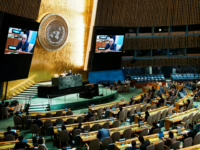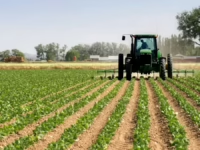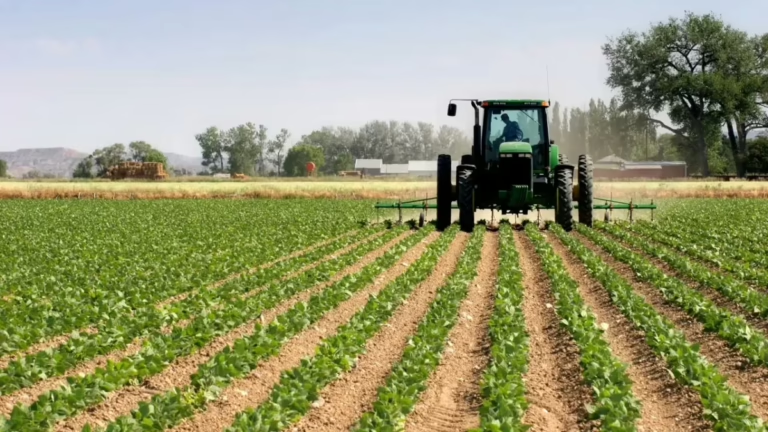The Foreign Agricultural Service (FAS) of the U.S. Mission has joined forces with the Nigerian government to implement cutting-edge strategies designed to boost agricultural trade, thereby fostering economic development and enhancing food security.
Matthew Obogbaimhe, chairman of the Kaduna Chapter of the Nigerian-American Chamber of Commerce (NACC), highlighted this collaboration during a roundtable held on Thursday in Abuja.
Obogbaimhe emphasized that rejuvenating Nigeria’s agricultural sector goes beyond imposing trade barriers; it requires embracing innovation, sustainable farming methods, and significant investment in infrastructure.
The roundtable, titled “Innovative Approaches to Agricultural Trade for Economic Growth and Food Security,” was co-hosted by FAS, NACC, and the Nigeria Agribusiness Group (NABG), according to reports from the News Agency of Nigeria (NAN).
Participants examined how Nigeria’s current agricultural trade restrictions influence food prices, domestic production levels, and investment flows.
This forum also served as a platform for the U.S. Mission’s FAS to engage with policy experts and advocate for a reassessment of limitations on U.S. agricultural exports to Nigeria.
Obogbaimhe noted that the collaboration with FAS is motivated by a shared goal to advance agricultural innovation and trade throughout the African continent.
“This roundtable created an invaluable space for exchanging insights and exploring forward-thinking agricultural trade policies that serve the interests of both Nigerian and American farmers and consumers,” he remarked.
Christopher Bielecki, Agricultural Counselor at the FAS office in Lagos, stated that the event allowed key stakeholders to deliberate on novel solutions aimed at enhancing agricultural trade, lowering costs for agribusinesses and consumers alike, and generating prosperity for farmers in both nations.
“The FAS office at the U.S. Mission eagerly anticipates ongoing cooperation with Nigerian authorities and agribusiness leaders to implement the roundtable’s recommendations,” Bielecki added.
“By jointly promoting innovative trade policies in agriculture, the United States and Nigeria can improve food security, stimulate value-added processing opportunities, attract investment, and fortify the agricultural sector,” he concluded.
Jafar Umar, director general of NABG, described the roundtable as both timely and crucial to the ongoing national conversation about trade and food security.
He reaffirmed NABG’s commitment to partnering with FAS, underscoring the group’s role as a leading advocate for agribusiness interests in Nigeria.
Dr. Betty Adegebo, a researcher with the National Institute for Policy and Strategic Studies (NIPSS), highlighted the adverse effects of Nigeria’s agricultural trade restrictions, including soaring food prices, expanded informal trade, and production inefficiencies, all while failing to achieve food self-sufficiency.
Presenting NIPSS’s research, Adegebo revealed that food inflation reached 30.6 percent in 2023, with staple items like rice and beef more than doubling in cost over the past two years.
She pointed out that the price of one kilogram of locally produced rice surged by 137.32 percent year-on-year as of October 2024, while boneless beef prices climbed by 98.73 percent.
“Challenges in production remain significant, including a maize production shortfall estimated at 300,000 metric tonnes annually and yields averaging only 2.0 tonnes per hectare, compared to South Africa’s 5.2 tonnes,” Adegebo explained.
She further noted that informal cross-border trade, particularly in rice and poultry, has grown due to high tariffs and import bans, despite government efforts such as the 2019 border closure to curb smuggling.
NIPSS recommends easing import restrictions and tariffs, establishing consistent and transparent trade policies, harmonizing tariffs alongside sanitary and phytosanitary standards, and leveraging regional trade agreements like the African Continental Free Trade Area (AfCFTA).
Additionally, Adegebo advocated for creating a centralized authority to oversee agricultural trade regulations, enhance official trade channels, strengthen sanitary and phytosanitary controls, and increase government revenue.
The roundtable gathered a diverse group of participants, including Nigerian agricultural trade policymakers, legislators, agribusiness executives, researchers, regulatory officials, and representatives from U.S. agricultural trade organizations.
























